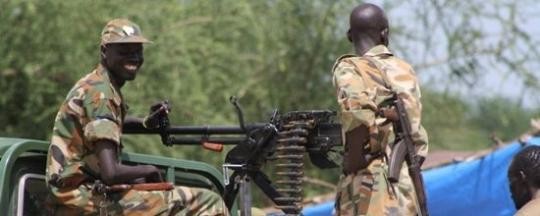South Sudanese are suffering from a lack of sincerity on the part of their political leadership. Sincerity, as many know, refers to the absence of pretense, deceit, or hypocrisy. This deceitful political culture stems from a total disregard for integrity. Former Kenya Anti-Corruption Commission Director Professor PLO Lumumba once said, “There is no way to integrity because integrity is the way.”
The Oxford Dictionary defines integrity as “the quality of being honest and having strong moral principles.” A person of integrity does not lie; they mean what they say, and their word is their bond. However, most South Sudanese political leaders and officeholders lie on camera in broad daylight. More often than not, citizens find it difficult to listen to or follow them, as they frequently say one thing and do the opposite.
This lack of sincerity is a critical issue that continues to erode public confidence in the country’s leadership. Most leaders in South Sudan say what they do not believe in, which is one reason citizens do not respect them. Respect is earned through honorable deeds, yet many leaders demand it without justification.
It is common knowledge that South Sudanese are constantly lied to by those in public office.
On April 23, 2021, I was speaking with a former National Legislator in the defunct Transitional Government of National Unity (TGoNU). During our discussion, I asked him: “I read that the presidency was supposed to constitute the National and State parliaments last week, but nothing happened. What is delaying the process?”
As the convenor of the Senior Youth of South Sudan (SEYOSS), I had already submitted proposed names of our members for appointment to the national and state parliaments. In response, the former legislator said, “The leaders keep saying ‘next week’ until it becomes a meaningless refrain. No one takes them seriously.” I appreciated his candor. He openly acknowledged that they are a bunch of liars. This may sound harsh, but it is the naked truth, backed by facts and evidence.
In August 2015, President Salva Kiir refused to sign the first Peace Agreement in front of IGAD leaders in Ethiopia because it included a clause creating two armies with two commanders-in-chief. Two weeks later, under intense pressure from IGAD and the international community, he signed the Agreement on the Resolution of the Conflict in South Sudan (ARCISS) in Juba—but made it clear he had reservations and signed under duress.
Despite his objections, the agreement proceeded. In April 2016, his rival, Dr. Riek Machar, leader of the SPLM-IO, arrived in Juba with a thousand protection forces. Barely three months later, another civil war—dubbed the “J1 dog fights”—erupted during a security meeting at the State House. The violence that followed killed hundreds of soldiers that same day.
Machar was forced to flee to the Democratic Republic of Congo, and the agreement collapsed—even as his former comrade, Gen. Taban Deng Gai, was hastily sworn in as First Vice President amid renewed conflict.
When the ARCISS was revitalized and ratified in Khartoum in September 2018, IGAD mediators rightly reviewed and removed the clause allowing two armies—a move that aligned with a December 27, 2017, press statement by the Senior Youth of South Sudan (SEYOSS). IGAD hoped this would speed up implementation.
After signing the Revitalized Agreement on the Resolution of the Conflict in South Sudan (R-ARCISS) on September 12, 2018, President Kiir praised it in an interview, saying it was “tenable and enforceable” because it eliminated the two-army system. The agreement explicitly required rival forces under Kiir and Machar to be retrained, reoriented, and redeployed before forming the Revitalized Transitional Government of National Unity (R-TGoNU).
Yet, the two leaders proceeded to form the government without unifying the forces. Now, half a decade later, the armies remain separate. The consequences are undeniable: a country with no unified national army or police is a recipe for instability.
Given this, I have repeatedly asked: If President Kiir was sincere in rejecting two armies, why hasn’t he expedited the reunification of forces in the last six months—or even six years—of the interim period? Had he been sincere, he would have ensured reunification before or after forming the R-TGoNU. Instead, he has been complacent, allowing insecurity to worsen under his watch.
Rather than acting decisively, he is purging military officers—as if that will curb the rampant insecurity. The ambushes on roads and highways are a direct result of rival forces operating without pay. Travelers are heavily taxed by different security factions, making life unbearable for hardworking citizens struggling to feed their families.
On April 21, 2021, Radio Tamazuj reported that the Eastern Equatoria State government had agreed that security operations would be conducted by joint SSPDF and SPLM-IO forces. This decision came after officials realized that unchecked armed groups from different commands were paralyzing the state.
This pragmatic move by Governor Louis Lobong Lojore should serve as a wake-up call to the presidency: Unify the forces now to end this perpetual insecurity.
The author, Dak Buoth Riek Gaak, is the Chairman of the National Committee for Legal Affairs in the South Sudan People’s Movement (SSPM). He can be reached at eligodakb@yahoo.com
The views expressed in ‘opinion’ articles published by Radio Tamazuj are solely those of the writer. The veracity of any claims made is the responsibility of the author, not Radio Tamazuj.




